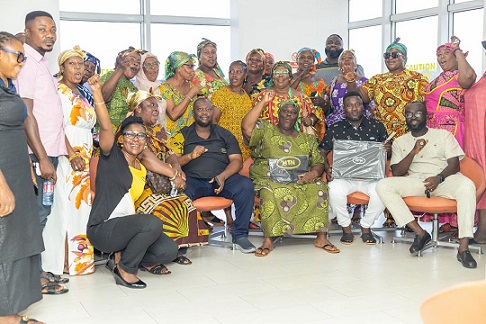Reasons behind BoG decision to closedown Dream Finance Limited (DFL)
Dream Finance Limited (DFL) was licensed by the Bank of Ghana on October 25, 2013 as a Finance Company.
Based on a 2015 review of the institutions operations, Bank of Ghana found Dream Finance to be insolvent and also facing liquidity challenges mainly as a result of the institution’s non-performing exposures to its related companies. The Bank of Ghana subsequently engaged the directors of the institution and agreed on a timeline to resolve the solvency and liquidity challenges. The institution failed to comply with the agreed plan. The institution’s capital adequacy ratio and net worth are both negative as at end-May 2019.
Related Stories
The reasons why BoG closed down Midlands Savings and Loans
Bank of Ghana to Introduce Upgraded Cedi Notes on May 6 2019
Nduom reacts to GN Savings and Loans shut down by BoG-Guess what
Bank of Ghana revokes licenses of GN Savings & Loans and 22 others
Specific issues that led to the revocation of the institution’s license
a. The institution’s Net worth of negative GH¢333.46 million as at end May 2019 indicates that its paid up capital is impaired in violation of Section 28(1) Act 930.
b. The institution’s capital adequacy ratio of negative 7,508.10% as at end May 2019 is in violation of Section 29(2) of Act 930.
c. The use of depositors’ funds to finance related-party projects. The institution is overexposed to six (6) of its related companies. The non-performing related party exposures have contributed significantly to the liquidity challenges of the institution.
d. The institution has persistently breached the cash reserve ratio requirement since 2015 due to serious liquidity challenges. It is also unable to honour customer’s withdrawal requests.
e. The institution changed its name from Dream Finance Limited to El Finance Limited and also relocated its Head Office without the prior approval of the Bank of Ghana.
f. Weaknesses in corporate governance practices as the institution is without a functioning board and key management personnel with the relevant qualifications and experience to do the business of banking.
g. The institution was involved in creative accounting practices, thereby misrepresenting and misreporting its true financial position to the Bank of Ghana.
h. The institution failed to implement Bank of Ghana on-site examination recommendations.
i. The institution is currently not engaged in normal business activities as a result of its capital and liquidity challenges.

 Ghana Stock Exchange achieves ¢90bn market value
Ghana Stock Exchange achieves ¢90bn market value  MTN SME Fair 2024: Empowering SMEs with Visibility and Networking
MTN SME Fair 2024: Empowering SMEs with Visibility and Networking  MTN Kicks Off SME Fair 2024 to Support Ghana’s SME Sector
MTN Kicks Off SME Fair 2024 to Support Ghana’s SME Sector  Bank of Ghana is not Bankrupt – Otabil
Bank of Ghana is not Bankrupt – Otabil  SME Month: MTN Ghana Engages Kejetia Market Queens
SME Month: MTN Ghana Engages Kejetia Market Queens  MTN Ghana Organizes SME Month to Boost Small Business Growth
MTN Ghana Organizes SME Month to Boost Small Business Growth  Bawumia’s smartphone pledge misguided and visionless – Adongo
Bawumia’s smartphone pledge misguided and visionless – Adongo  Good Grow: The Marijuana Farm Founded by Akufo-Addo’s Daughters
Good Grow: The Marijuana Farm Founded by Akufo-Addo’s Daughters  National Food Suppliers for Free SHS set to picket at Education Ministry
National Food Suppliers for Free SHS set to picket at Education Ministry  Information Ministry justifies ¢151k paid to staff as Covid-19 risk allowance
Information Ministry justifies ¢151k paid to staff as Covid-19 risk allowance